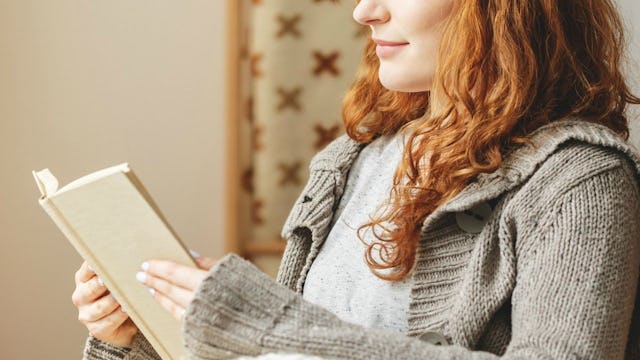Stop Shaming Moms For Taking Time Away From Their Families

A few weeks ago, my husband decided to take time away, motivated by his love for Evanescence and the opportunity to finally meet Amy Lee in person — as opposed to just stalking the band’s Facebook page. He doesn’t take much (non-work related) time away, so I thought I’d be fine with it.
But when he returned, he had a frantic wife and hyperactive son waiting for him. I was at my wit’s end, and truthfully, I was jealous that he had the freedom and lacked the societal stigma to hop on a plane and see a concert for two days without having to bring the rest of the family with him.
As a mother, I have to think about where my son will be at every moment. As a work-from-home mother, I am often forced to juggle all the regular mom stuff while trying to manage my workload. I spent some time thinking about all those factors, and before I knew it, I was pretty upset. Why am I always the designated caretaker?
I told my husband that I needed to get away from him and our son for at least two days. I said it mostly out of anger, and didn’t expect to do anything. I knew my words came from a place of frustration and exhaustion. The more time that passed, I wondered if I was being ridiculous to have even considered a mommy getaway — while four months pregnant, no less.
But my husband encouraged me. With his help, I found a place that was within my price range and looked safe enough for me to have a few nights alone. And I did it. I left. For three and a half days, it was me, my work, and my baby bump. While the experience brought on a mix of emotions, for the most part, it was pretty freaking amazing.
Recently, I was shocked to read an article on Good Morning America that called the question about whether or not mothers should have a break a “momtroversy.”
How can anyone who has ever seen a mom in action ask that question with a straight face?
Various studies have come out saying that for the average mom, motherhood holds the weight of several jobs. Similarly, Salary.com estimates the average stay-at-home mom would be getting paid more than $143,102 considering all that they do. But of course, like many fields that women are represented in, the value of motherhood is undervalued.
For moms, like the one listed in the GM article who believe there are too many precious moments to miss out on any of them, that’s fine. As a mother, I know it isn’t my place to tell someone else how much they should enjoy or not enjoy being a parent. But the way we uphold an image of the “ideal mother” as someone who is so sacrificial she puts nothing above her children has to stop.
In the last few years, we’ve seen conditions like perinatal and postpartum depression on the rise. Thankfully, we are increasing the mental health dialogue, especially for specific vulnerable groups like mothers. But what we seldom discuss is the way that depression during pregnancy and motherhood are often tied to women’s fears that they will lose all of themselves after having a child. Along the same lines, we often have fears that parenthood marks the death of our professional careers. Sadly, for many mothers, that’s the reality.
It’s sexist and ridiculously irresponsible for our society to continue to put the sole responsibility, or a disproportionate amount, of the tasks associated with parenthood on mothers. The idea that mothers have to be the responsible parent is archaic and often false. These ideals tie into the same schools of thought that are working to fight women’s workplace equality movements (because they should be home), justify wage inequality (because we will just take maternity leave anyway), and reduce women access to reproductive services (because women exist to produce and rear children).
Who cares if a mom takes time away? Why is motherhood always up for debate? And why don’t we attach the same stipulations to fatherhood as we do motherhood?
It’s not up to society to debate whether or not a mother has a child-free vacation. Just like it’s not up to society to decide what mothers wear, if they breast or bottle feed, or how many children they have.
As a society, we need to acknowledge and trust that women are capable of making their own decisions without regulation or oversight. If a mother feels that a few trips a year is the best way for her to parent at full capacity, promote positive mental health, and accomplish self-care, who are we to have an opinion?
I’m more than a mother. I’m a human with personal, career, and other life goals. If fatherhood doesn’t mark the end of enjoying life, why the hell should motherhood represent the end for me?
This article was originally published on